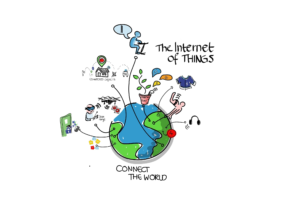Blockchain Beyond Cryptocurrency Real-World Applications Explained
Blockchain beyond cryptocurrency is a transformative technology that’s revolutionizing numerous sectors beyond digital currencies. It offers innovative solutions for secure, transparent, and efficient operations. Many people have heard about cryptocurrencies, but they’re often unaware of the wider impact of blockchain technology. This article explores real-world applications of blockchain technology, moving beyond the realm of cryptocurrency, addressing critical problems in various industries and unveiling the potential for future innovations. It will delve into specific examples and discuss the underlying mechanisms, providing a clear understanding of the technology and its significant implications. By the end of this article, you will understand the broader impact of blockchain beyond cryptocurrency and its potential to transform industries.
1. Supply Chain Management Revolutionized by Blockchain
1.1 Enhanced Transparency and Traceability
Blockchain’s decentralized nature provides unparalleled transparency in supply chains. This allows businesses to track products from origin to consumer in real-time, increasing accountability and efficiency. For example, food manufacturers can trace the journey of ingredients, ensuring freshness and safety, or verifying product origin. This transparency instills trust among stakeholders. Supply chain participants can access and verify information, reducing disputes and enhancing accountability. This transparency also aids in building trust with customers who value ethical and sustainable sourcing.
1.2 Preventing Counterfeiting
One of the most compelling use cases of blockchain in supply chains is preventing counterfeiting. By recording every transaction on an immutable ledger, companies can track products’ journeys. This creates a secure audit trail and confirms the legitimacy of products, reducing the incidence of counterfeiting. This is particularly crucial for industries with high-value products and high-risk supply chains, like pharmaceuticals and luxury goods. A verifiable audit trail provides peace of mind to consumers.
1.3 Streamlining Documentation and Payments
Blockchain streamlines documentation and payments within supply chains. Instead of multiple paper-based documents and manual processes, businesses can digitize and share information securely and transparently. Smart contracts can automatically trigger payments based on predefined conditions, eliminating delays and improving cash flow. This efficiency improves overall profitability.
1.4 Reducing Costs and Improving Efficiency
The automation features and verified transactions that blockchain facilitates substantially reduces overall costs within a supply chain. By automating various processes and ensuring secure data sharing, the associated costs are decreased and overall efficiency improved.
1.5 Promoting Ethical and Sustainable Practices
Using blockchain’s transparency, producers can promote ethical sourcing and sustainable production methods.
2. Revolutionizing Healthcare with Blockchain
2.1 Secure Patient Data Management
Blockchain can provide a secure and transparent platform for managing patient data, ensuring data privacy and security. The decentralized nature of blockchain ensures patient records are protected from unauthorized access and modification, which is a major concern within the healthcare sector. This is a key aspect, especially considering the sensitive nature of patient information. Secure record-keeping also reduces medical errors.
2.2 Streamlining Drug Traceability
Similar to supply chains, blockchain can enhance drug traceability and authenticity. This significantly aids in ensuring drug safety and preventing counterfeit medication. Tracking the supply chain from manufacturer to patient provides critical oversight and security.
2.3 Facilitating Secure Clinical Trials
Clinical trials can benefit from blockchain’s ability to manage patient data and ensure its integrity throughout the entire trial process. This can streamline the process, reduce costs, and enhance data security. The decentralized ledger ensures data is available to authorized participants, facilitating collaborative efforts and providing critical insights.
2.4 Improving Interoperability Between Healthcare Systems
Blockchain solutions can facilitate interoperability between different healthcare systems and providers. Data sharing becomes more accessible and efficient for improved care coordination, improving the overall patient experience.
2.5 Empowering Patients with Control
Blockchain empowers patients to control their health records and access to relevant information, allowing for greater control and privacy.
3. Enhancing Digital Identity and Access Control
3.1 Establishing Trustworthy Identities
Blockchain’s secure and transparent nature can be leveraged to establish trustworthy digital identities. This allows for more streamlined access controls and secure authentication. This could significantly improve the overall user experience.
3.2 Streamlining Identity Verification Processes
Digital identities can significantly reduce complexities associated with traditional identity verification processes. Verification becomes more streamlined and efficient.
3.3 Protecting User Data
Protecting user data is paramount. Blockchain’s cryptographic approach to data storage and security can enhance overall security.
4. Secure Transactions in Finance and Business
4.1 Enabling Secure Transactions
Blockchain has the potential to eliminate intermediaries in transactions, resulting in faster processing times and cost savings. Smart contracts can execute transactions automatically based on pre-defined conditions.
4.2 Improving Regulatory Compliance
By leveraging the transparency and traceability of blockchain, companies can significantly improve regulatory compliance and reduce associated costs. Increased transparency can assist in preventing fraud and suspicious activity.
4.3 Enhancing Financial Inclusion
Blockchain can facilitate financial transactions for individuals who lack access to traditional banking systems.
4.4 Promoting Secure Cross-Border Transactions
Blockchain significantly improves the efficiency and speed of cross-border payments, enabling more streamlined transactions and reducing costs.
4.5 Establishing Trust in Financial Transactions
The secure and transparent nature of blockchain builds trust among participants in financial transactions.
Related Post : Exploring the Potential of Quantum Computing for Everyday Use
5. Other Emerging Applications
5.1 Improving Voting Systems
Blockchain can improve voting system security and transparency.
5.2 Facilitating Intellectual Property Protection
Blockchain has the potential to protect intellectual property. Secure, verifiable records will protect intellectual property rights, enhancing overall innovation and safeguarding creative works.
5.3 Encouraging Charitable Contributions
Blockchain can facilitate charitable contributions and donations, ensuring transparency and accountability.
5.4 Enhancing Real Estate Transactions
Blockchain can streamline real estate transactions, enhance transparency, and reduce associated costs.
5.5 Improving Governance and Supply Chains
Blockchain can be used to improve governance by offering transparent and secure records, and aid in supply chain management by tracking products and documenting transactions, creating more accountability and streamlining processes.
What are the security concerns related to Blockchain Beyond Cryptocurrency?
Despite its inherent security, Blockchain is not invulnerable to attacks. A careful consideration of security protocols and potential vulnerabilities is crucial to prevent fraudulent activities.
What is the future outlook for Blockchain Beyond Cryptocurrency?
Blockchain’s applications beyond cryptocurrency are continually expanding as new use cases are discovered. Adoption rates in various industries will continue to grow, and expect further advancements and innovations in this field.
In conclusion, blockchain technology’s potential extends far beyond cryptocurrency, offering innovative solutions across diverse sectors. From supply chain management to healthcare, the decentralized nature of blockchain fosters trust, transparency, and efficiency. By understanding and embracing these applications, businesses and individuals can leverage blockchain’s transformative power to create a more secure and interconnected future. Consider exploring blockchain development courses to further your knowledge and skillset in this emerging field. Explore real-world use cases of blockchain beyond cryptocurrency to see how this revolutionary technology is revolutionizing various industries.
Share this content:














Post Comment